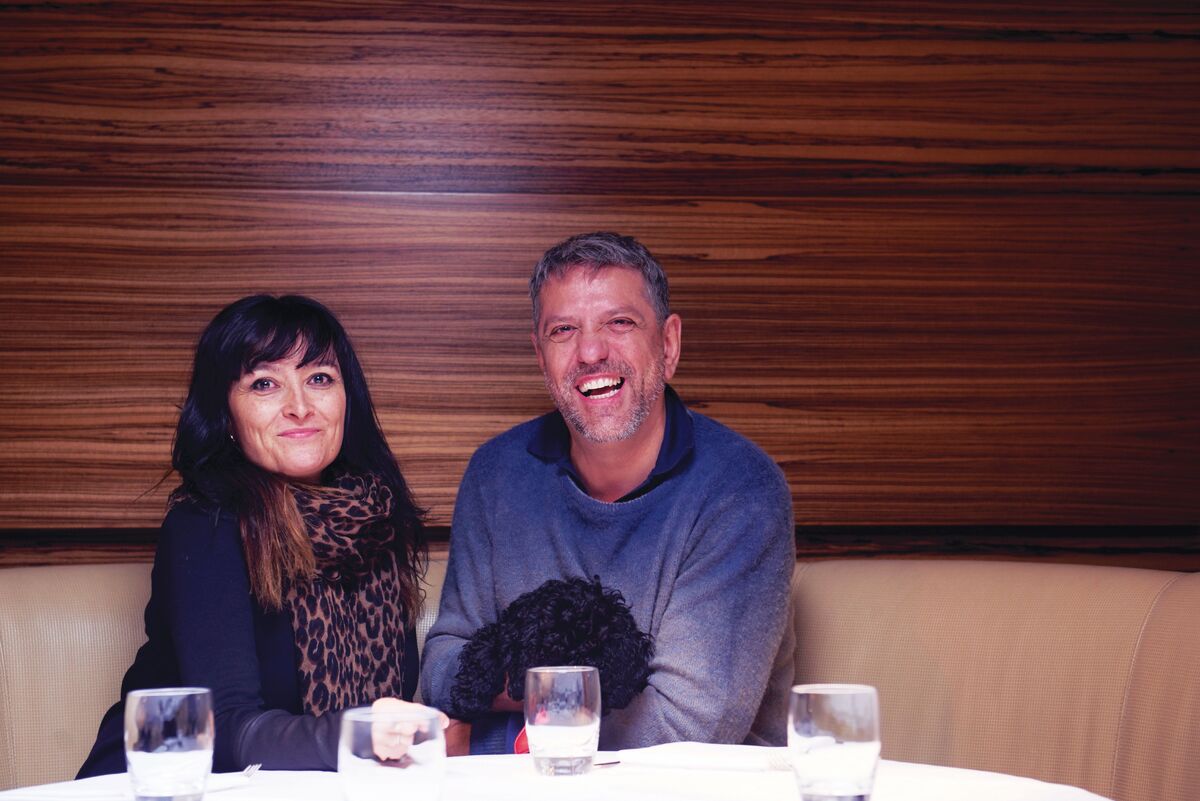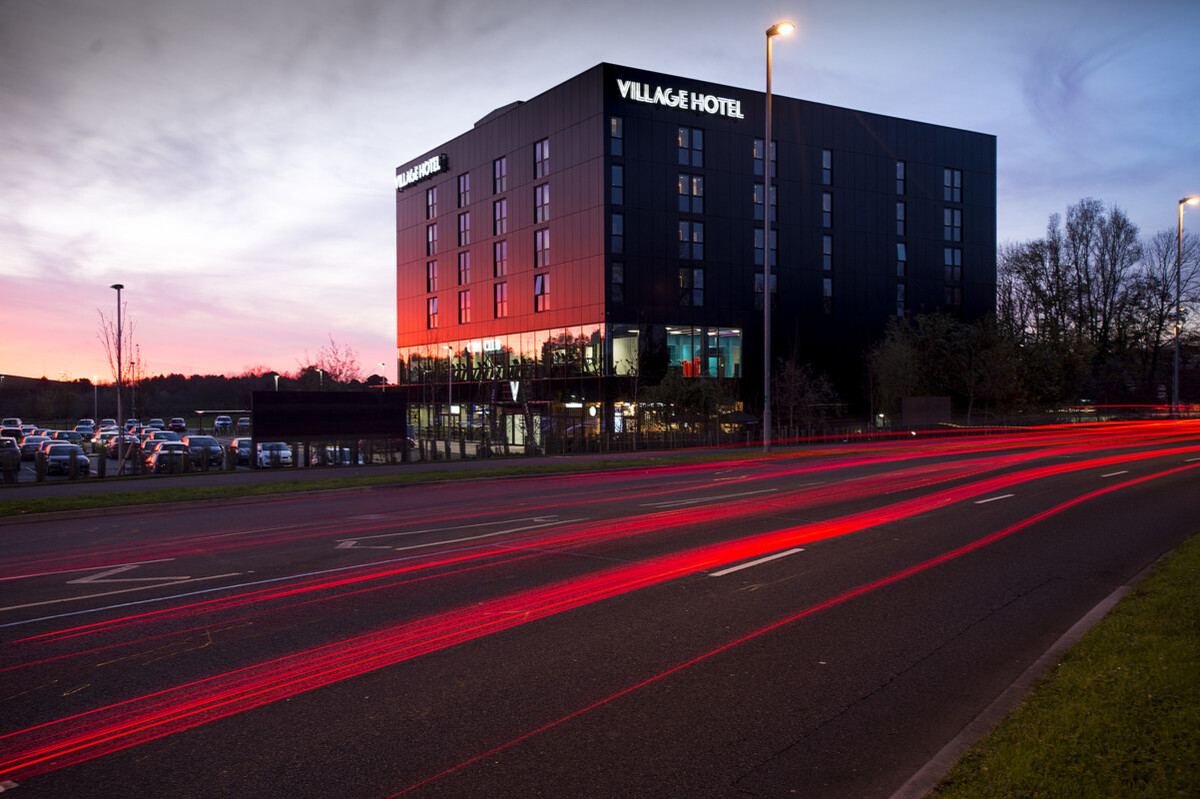An interview with Ken Crosland: Dealing with drink and drugs at work
A year ago the Ark Foundation launched a consultancy arm to help businesses deal with the problem of drink and drug dependency in a constructive way. The man behind it is Ken Crosland, who knows all about the dangers of alcohol abuse. Mark Lewis went to meet him
Join Caterer‘s Be Aware campaign which highlights the worrying level of drug and alcohol misuse in the hospitality industry at www.caterersearch.com/beaware
What would you do if an employee told you they had a drink or drug problem? Sack them on the spot before they tarnish your company's reputation? Tell them to get a grip? Or perhaps refer to your corporate drugs and alcohol abuse policy and act accordingly to help them? If spotting the correct answer in this scenario taxed you, you need to call in the Ark for Business.
Since 2000, the Ark Foundation has been educating hospitality students, employees and managers on the dangers of drink and drug dependency. Last January it launched a new consultancy resource, Ark for Business, offering employers help with drug and alcohol policy design, employee awareness and management training.
The man behind Ark for Business is recovering alcoholic Ken Crosland, whose drink problem emerged during a stint as a waiter in the USA. Since the launch of the consultancy, he has been on a mission to dispel the "can't happen here" attitude that defines many hospitality operators' approach to alcohol and substance abuse.
Moral imperative
Crosland sees clear moral and commercial imperatives to addressing drink and drug misuse among employees.
"An employer has a choice to make," he says. "Either ‘If it's a problem for any of our employees, we would like to help them' or ‘We don't want to know about it', in which case it's a hidden problem and the business is vulnerable."
Crosland has first-hand experience of less- enlightened management practice, having been made redundant by more than one employer for erratic behaviour stemming from his alcoholism.
"I think their strategy for dealing with employees with drink problems was to make them redundant and allow them to take their undoubted talents but also their problems elsewhere. That's commonplace. If that's your strategy, you don't have a policy to protect you from the people coming into the company who may be displaced from another company because of the same problem."
Ark for Business offers three core elements: policy guidance and consultancy management training and employee awareness.
"First, we try to encourage people to have a good drug and alcohol policy in place. It's important to have a policy that's alive and breathing and right for the company so you haven't just ticked boxes."
A policy should leave all parties aware of their responsibilities and duties and enable managers to act confidently, consistently and fairly.
"Increasingly, it identifies when an issue is one of capability or conduct," he says. "When it's someone with a health issue through dependency, normal health provisions need to be put in place. You treat this sickness as you would any other. If it's a disciplinary issue then it's handled in a different way. At the moment there's no statutory call on employees to do this stuff."
The business benefits of having a mechanism in place to support employees with addiction problems are, Crosland says, plain to see.
"A lot of people forget the effect on morale," he says. "Addicts are very good at manipulating people and arm-twisting. But it's not part of [an employee's] terms and conditions to cover for someone who's always late because they have a hangover. A good member of staff sorts their problem and continues to be a good member of staff - actually they're even better because they've put a problem behind them, are grateful and loyal and don't have that dirty secret".
The second leg of the Ark for Business stool is its employee awareness seminar, when Crosland or an Ark colleague tells their no-holds-barred story of addiction. Having seen one of these seminars myself, I can testify to their impact.
"A big part of it is the ‘oh shit, hairs on the back of the neck' effect, when people for the first time in their life hear someone talking about their own drinking problem", Crosland says.
Seminars combine first-hand experience with broader lessons on how alcohol works. They also encourage individuals to take a good look at themselves, asking questions such as ‘has your drinking moved from being a social thing to where you are now quite happy drinking alone?' and ‘if you are going to a social occasion do you make sure you've had a couple before you go?'
"It's not just about what you drink or how much or how often it's about what it does to you and how it makes you behave and the effect it has on you as an individual," explains Crosland, who maintains that employees and managers can all benefit from Ark seminars.
"In this industry it's too easy to say ‘it's just in the kitchen'. It goes far beyond that. It's as likely to be the commercial or financial department. And for managers, the higher up they go, the more at risk they are because of the increased pressures."
Management training workshops complete the Ark for Business consultancy process. This is about telling managers what to do, looking at the legal issues underpinning policy and running scenarios so that delegates gain experience at dealing with real-life situations. Workshops also explain how to spot the signs of addiction in employees.
"A person who may be developing an issue will do their damnedest not to confront it denial is an integral part of the illness," Crosland says. "Use can progress into addiction so insidiously that sometimes people don't realise their drinking or drugging has become a real problem.
"There's a story of the frog in the water that illustrates this well. Put a frog in a pot of hot water and it will jump out immediately. But put the same frog in a pot of water that is cool then slowly turn up the heat, and the frog won't jump out. He'll be dead before it starts to boil. The change was so slow and gradual he didn't notice."
As the gatekeepers of the policy, managers are encouraged to scrutinise performance, attendance and behaviour for indicators of a developing problem. But they have to know what the signs are in order to spot them early.
Throughout our interview, Crosland is never judgemental ("Some of my best times were had with alcohol," he admits, "and if it still worked for me without the bad consequences, I'd still be drinking") but he speaks with an evangelist's zeal about the benefits that can ensue when companies confront drug and alcohol abuse head-on and build a robust dependency policy into their corporate DNA. And he speaks movingly about the human cost of addiction.
"Everything else begins to let you down -your boss at work, your girlfriend, bastards at the bank. They're all giving you a hard time and the one thing that makes it better is the booze. The paradox is that it's the booze that is causing the problem in relationships and with work and finances. It's a really cruel illness."
Ken Crosland in his own words
After my degree I tried my hand as a civil servant but lasted less than a year. I thought, "There has to be more than this." I ended up in New York, fell in love with the place and became a waiter. I loved it: I was impassioned because of the excitement and the buzz. In six months drinking was beginning to become a problem. I think it was a combination of a busy service every night - as much as I loved the buzz, it was always pressured - finishing work at 11pm with your head still buzzing and quickly jumping headlong into that section of colleagues who used booze to come down quickly.
I lost that job because I was becoming unreliable as the hangovers and mood swings got worse. I became a promoter and started running club nights. Again I did well but drinking got in the way. I lost all my opportunities and came back to London with my tail between my legs.
I became an event organiser for a large media company. I did well but drinking sometimes got in the way. I tried to stop and couldn't - so my only option was to try to control it. In the morning I'd go in full of fear as I'd be suffering from a big hangover, but it went beyond the physical manifestations of a hangover and became a real sickness, almost an existential feeling of decay. I'd avoid customers that called to speak to me. Sometimes these were important people that wanted to talk business. In the afternoon, because I'd had a couple of drinks at lunchtime to top up, I'd become alive again and do the business.
I managed to hide it for quite a while, then I did the hardest thing I'd ever done. I went to my boss and said, "I think I've got a problem with booze." He was silent for a moment then gave a nervous laugh and said, "Ken, for fuck's sake, don't say that! If you've got a problem then I've probably got a problem and so have this and that person. We've all been working flat out, let's have an early lunch and go for a drink." If that company had had a more meaningful drug and alcohol policy in place, my boss might have said, ‘I can make a phone call, leave this with me.' The fact is he said what I wanted him to say.
My kitchen table was my park bench. That was where my drinking ended up when I'd gone out with work buddies. After a couple of hours of de-stressing, I'd go home via the off-licence and end up at the table with a bottle of wine, reliving the battles I should have had during the day - the things I should have done but didn't. That bottle would sometimes become two. I thought it was all quite civilised. But I was physically and psychologically addicted to alcohol and I didn't know it.
My work life was the one thing that I protected. All my energy had to go into keeping the work plate spinning because that paid the bills and the only self-esteem in my life tended to come from it.
My eventual collapse came when my relationship ended. The shit hit the fan: I'd managed to control my drinking but overnight my control dissolved. I started having to drink in the morning to deal with the shakes. I wasn't drinking a lot more, it was just that my best friend - the booze - turned round and started beating shit out of me. I went to my doctor, did a home detox and stayed sober for four months. Then one day I thought, "I've got to be able to have a drink'. I picked up a drink and started a three-week relapse.
I always thought I could control booze. My 30s were about thinking, "I must be able to take this back to where it used to be when it was a bit more fun." But booze is always more powerful than me.
I ended up going back to my doctor. I knew I was beaten. It was either carry on drinking and kill myself or commit suicide. Then I began to go to AA. The most amazing thing that came from that was the realisation I wasn't alone and wasn't a bad person. I met like-minded people that had been through the same stuff a support network.
Later I met Peter Kaye and he introduced me to the Ark. My problem kicked off in the hospitality industry so it was a full circle. I decided I wanted to marry my personal experience of dependency with my commercial experience and help businesses deal with alcohol and drug issues in the workplace.
The benefits of keeping dependency out of the workplace
- Reduced absenteeism
- Improved timekeeping
- Increased productivity
- Better employee motivation
- Greater staff retention
- Less risk of accidents
- Reduced theft and wastage
- Improved company image
- Stronger CSR policy
- Reduced risk of legal claims
The Ark for Business in a nutshell
The Ark for Business is a dedicated consultancy focused at helping hospitality employers prevent alcohol and drug misuse becoming a problem in the workplace. Its services were developed in conjunction with key hospitality employers, including the RAC Club, Claridge's, the Royal Garden Hotel, BaxterStorey and 3663 First for Foodservice. Its services include:
- Employee awareness seminar
- Management training workshops
- Drug and alcohol policy design and audit
For more information, contact 0870 351 0160
Join Caterer‘s Be Aware campaign which highlights the worrying level of drug and alcohol misuse in the hospitality industry at www.caterersearch.com/beaware















